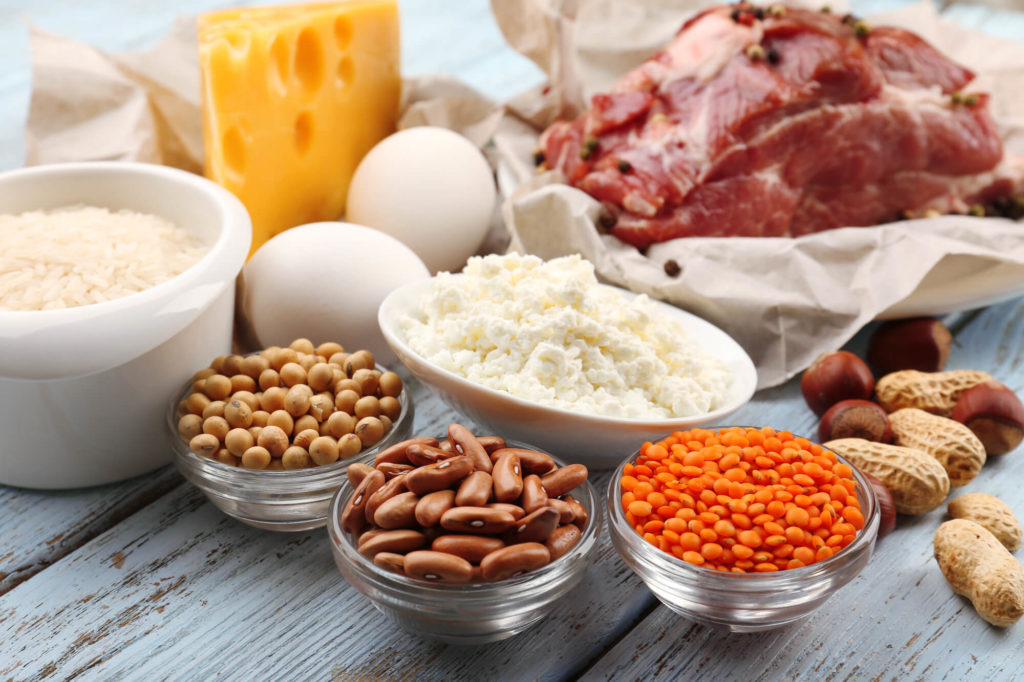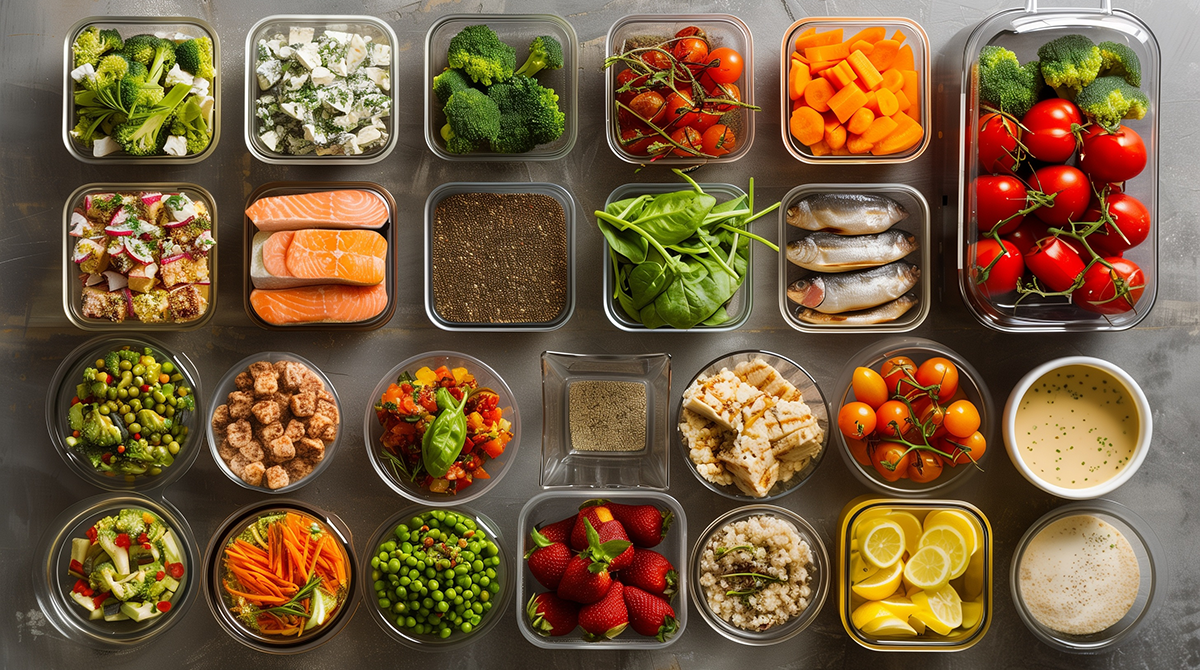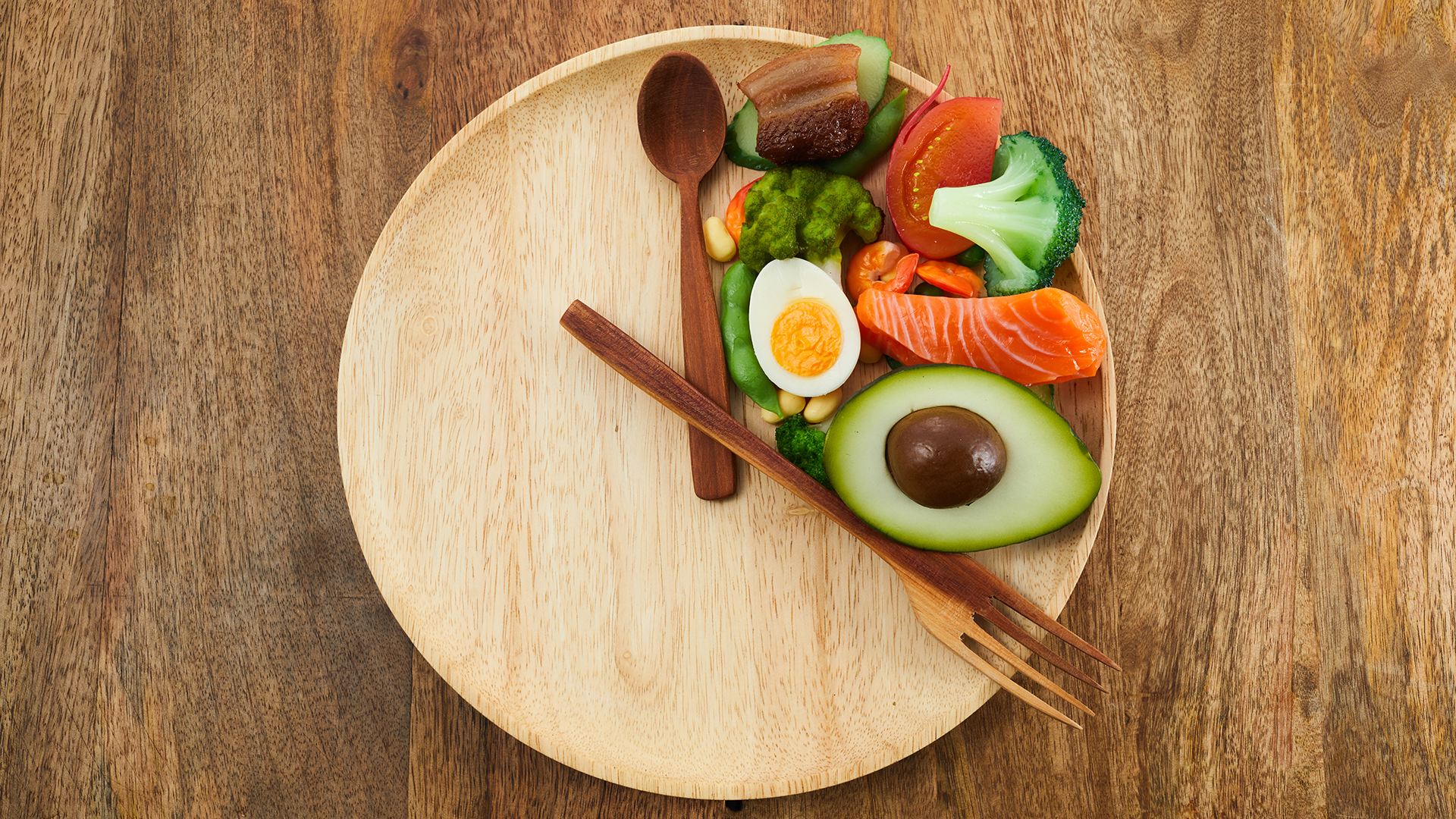Low fat, low carb, and high protein diets are thought to be the holy grail of weight loss.
In part, this is due to the onslaught of nutritional studies that demonstrate how cutting carbs and increasing protein can lead to a state of ketosis in which the body burns fat for fuel. It has long been researched and known that protein causes you to burn fat without losing muscle, all while keeping appetite at bay.
From these benefits alone, it’s obvious that protein is essential for any smart dieter. In this article, we discuss what protein is, what it does for the body, and what high protein foods you should be eating to get your nutrients every day.
What is Protein Anyways?
When you hear the word “protein,” eggs, meat, dairy, and certain plant-based sources may come to mind. But, what is protein exactly?
Proteins are quite literally the building blocks of life. Every cell in your body contains protein and when you consume protein as part of a healthy diet, the body breaks it down into usable amino acids. Essential amino acids come from food alone, meaning you must consume them in your diet to nourish your body.
Amino acids serve several important roles, including:
- Nutrient Transport and Storage – The body needs amino acids to transport and store water, fat, carbohydrates, proteins, vitamins, and minerals efficiently throughout the body.
- Prevent Certain Conditions and Diseases – Conditions such as arthritis, osteoporosis, high cholesterol, diabetes, and menopause can be traced to dietary issues, including low protein consumption.
- Sleep and Mood – Amino acids also serve an important role in regulating sleep and mood.
As such, they’re important not only for a healthy diet, but for regular functioning as well.
Why a High Protein Diet is Necessary for Weight Loss
Protein has implications for both weight loss and metabolic health as well. And if you’re looking to lose weight, there are several scientific reasons why protein will help you achieve your goals.
The primary reason why dieters consume a high protein diet is because it is filling, meaning you’ll eat less if you fill up on protein first. Protein reduces ghrelin levels in the body, commonly known as the “hunger hormone,” while boosting peptide YY, which signals to the brain that you’re full. With these two effects in mind, it’s no wonder why protein makes you feel full.
Other weight-loss related benefits of a high protein meal plan
- Reduced Cravings – Many dieters stay on track during the day but fail to control their cravings or late night snacking. Many studies reveal that high protein consumption can eliminate cravings and keep even the most tempted dieters on track.
- Metabolism Boost – Protein boosts metabolism due to its thermic effect in the body. This means the body uses more energy to break down protein than other macronutrients (i.e. carbohydrates and fat), helping you burn more calories from the food you would already be consuming.
- Sustainable Weight Loss – Because protein keeps you full, reduces cravings, and boosts metabolism, it leads to sustainable weight loss. In fact, some who increase protein consumption lose more weight, even without increasing their activity levels.
Protein consumption also comes with more general benefits for your body that you’ll need to maintain physical health. These benefits include increased strength, bone health, lower blood pressure, and better healing abilities after injury.
The Best high Protein foods for Smart Dieters

It’s undeniable that you need protein. But, how much and what kinds of protein should you consume on a regular basis?
There is no one set amount of protein that every person should consume on a daily basis. Rather, you should consume 10 to 35 percent of your daily calories from protein sources depending on your activity level, health condition, and other potential factors. On average, this works out to approximately 46 grams of protein for women and 56 grams for men daily.
What you eat matters too. You can’t consume fat-laden pieces of red meat daily and expect to lose weight because you’re “getting your protein in.” When you want to lose weight, focus on these high protein foods:
- Seafood – Seafood is typically low in fat, making it a great source of protein. Even salmon, which contains more fat than most seafood, is acceptable because it’s rich in the right types of fat (i.e. omega-3 fatty acids).
- Poultry – Poultry, especially chicken, is a staple high-protein, low-fat food for dieters. Avoid the skin and dark meat if you want to reduce your fat intake.
- Eggs – Eggs are inexpensive and contain about six grams of protein.
- Beans – In one-half cup of beans, you’ll get the same amount of protein you would in a steak. Beans also contain a significant amount of fiber, which will keep you full for longer.
- Soy – If you’re a vegetarian or vegan, soy is essential as well. Soy consumption can help lower cholesterol and contains less fat than most animal sources of protein.
Check: 8 unhealthy foods that are commonly presented as healthy choices
Eating Regular Portions of the Right Protein foods Will Promote and Sustain Weight Loss
Consuming protein is essential for anyone looking to lose weight. When done correctly, a high protein diet is the simplest way to lose weight and promote a greater standard of overall health.
Of course, there are always choices you can make to push your results even further. PhenQ complements a high protein diet by burning stored fat, suppressing your appetite, and improving mood and energy levels. By making positive changes to your diet and supplementing with PhenQ, you can achieve your goal weight more quickly and more effectively than you could otherwise.




